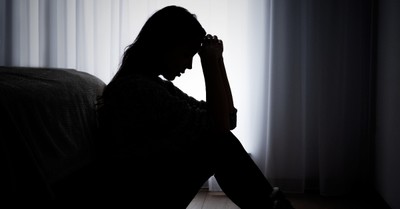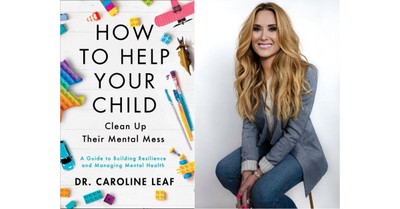
The study also found that people adhering to woke ideologies suffered 67.9 percent higher for anxiety, 32.5 percent higher for depression, and 4.5 percent higher for unhappiness, The Blaze reported.

The study also found that people adhering to woke ideologies suffered 67.9 percent higher for anxiety, 32.5 percent higher for depression, and 4.5 percent higher for unhappiness, The Blaze reported.
In the face of Gen Z’s mental health crisis, it is the Gospel and not gloom that should motivate and inform us.
According to a new report from the Centers for Disease Control and Prevention (CDC), the rate of suicides by firearm experienced an 11 percent increase between 2019 and 2022
These questions are often asked when someone encounters a traumatic event or experiences a tragedy of some kind.
And, while I don’t have the answers to all these questions, I do know Who does. When things get too hazy and become unclear, the best thing we can do is turn to God’s Word and seek His wisdom.
So, what does His Word say about trauma? A lot, actually. There are several verses weaved throughout Scripture that set a foundational understanding of trauma and how we can seek hope and eventually heal. But, before we dig in, I would like to start with a prayer. Will you pray with me?
Heavenly Father, You are kind, gracious, and so good to us. Your mercies are new each and every day. We are so thankful that You are a personal God and seek to have an intimate relationship with us. With that, I pray for those that You lead to this space.
You know their hurt, pain, and suffering. You see them and their situation. You’ve heard the depths of their painful prayers, the spoken and unspoken ones, and You have held onto every single tear.
So, I ask that You give them a message of peace, wrapped in hope. Draw them close and reveal the truth while gently extending Your grace and compassion. I ask all this in Jesus’ name. Amen.
Oh, dear friend, whether you or someone you deeply love is experiencing trauma, and you find that it is filling your mind with endless questions, I am so sorry. But I do understand.
This life is filled with uncertainties and can often leave us feeling lost and confused. So, will you join me as we discover five truths that will give us a better understanding and teach us what God says about our suffering?
Photo Credit: ©iStock/Getty Images Plus/Svitlana Hulko
Most counselors, teachers, and those who work with children and youth believe that our children were facing serious challenges before the COVID-19 pandemic, which has only risen after the pandemic.
The Gospel is the only spiritual chemotherapy for the spiritual malignancy that afflicts every human being.
Christians have a unique gift for our culture today: we alone can demonstrate the kindness of Christ by offering our best service to hurting souls while sharing the good news of God’s love. But we cannot love well until we embrace the fact that we are well loved.
According to the Associated Press, nearly 50,000 people committed suicide last year, an absolute record in terms of raw numbers and the highest rate in nearly a century. Though, as one scholar noted, there’s always the chance that the numbers are up on account of better reporting, that doesn’t explain the consistent increase in these numbers over the last two decades. Something is broken in the United States, and it’s us.
On the Aug. 31 episode of Sadie Robertson Huff's Whoa That's Good podcast, she sat down with CCM singer Lauren Daigle to talk about mental health and panic attacks.








